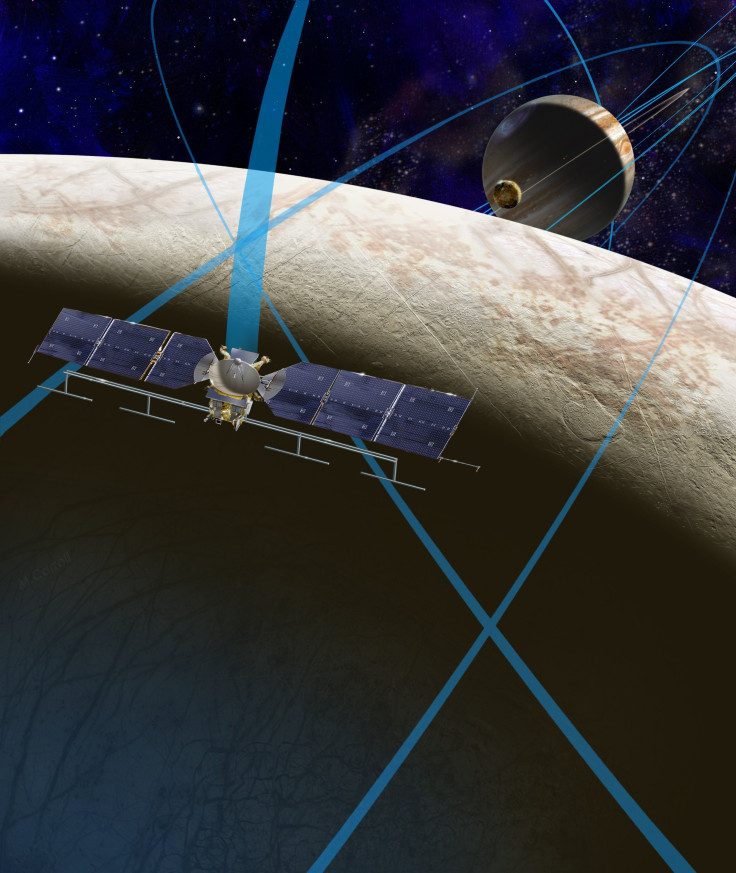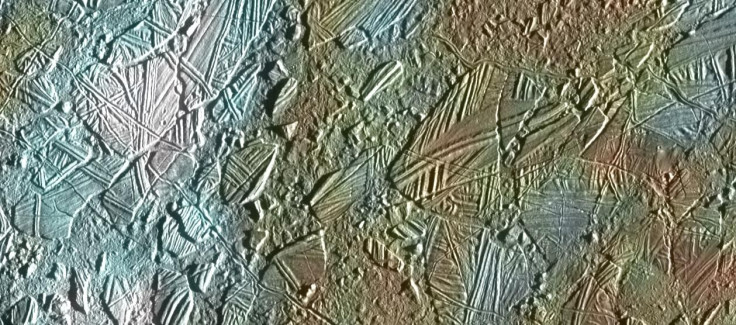NASA's Europa Mission: Mankind Is Now A Step Closer To Looking For Life On Jupiter's Moon

Jupiter’s moon Europa -- the sixth largest moon in our solar system -- is perhaps the best place to look for life beyond our planet. Previous observations from Earth have bolstered the hypothesis that the moon has a salty, subsurface ocean conducive to the origin and evolution of extraterrestrial life.
Now, an ambitious NASA mission to conduct a detailed survey of this ice-clad moon has moved from concept stage to the development phase. The mission plan calls for a spacecraft to be launched to Jupiter in the 2020s, arriving in its orbit after a journey of several years, NASA said in a statement released Thursday.
“It’s a great day for science,” Joan Salute, Europa program executive at NASA headquarters in Washington, said in the statement. “We are thrilled to pass the first major milestone in the lifecycle of a mission that will ultimately inform us on the habitability of Europa.”
In the 1990s, NASA’s Galileo mission to Jupiter provided strong evidence that Europa has an ocean beneath a frozen crust of unknown thickness. If such an ocean is proven to exist, it could have more than twice as much water as Earth currently does.
“We know that on Earth everywhere that there’s water, we find life,” Robert Pappalardo, Europa mission project scientist at NASA, said in a video accompanying the statement. "So, could Europa have the ingredients to support life?"
Because Europa is bathed in intense radiation from Jupiter, NASA will be sending a probe into a long, elliptical orbit around the planet itself, occasionally dipping in close to investigate Europa in brief visits that won't fry its electronics.
“Previous mission concepts were for a spacecraft that would orbit Europa,” Pappalardo said. However, the current mission plan includes 45 flybys during which the spacecraft would not only photograph the moon’s icy surface in high resolution, but also use its plethora of instruments -- announced last month -- to determine the thickness of its icy shell and investigate the chemical makeup of the subsurface ocean.

NASA’s 2016 budget request includes $30 million to formulate a mission to the Jovian moon. Scientists believe that if life is discovered on Europa, which, in the cosmic scale, is “in our own celestial backyard,” it would mean that origin of life throughout our galaxy and beyond is a relatively common occurrence.
“If there is life in Europa, it almost certainly was completely independent from the origin of life on Earth,” Pappalardo said. “Europa is so important because we want to understand -- are we alone in the cosmos?”
© Copyright IBTimes 2024. All rights reserved.






















